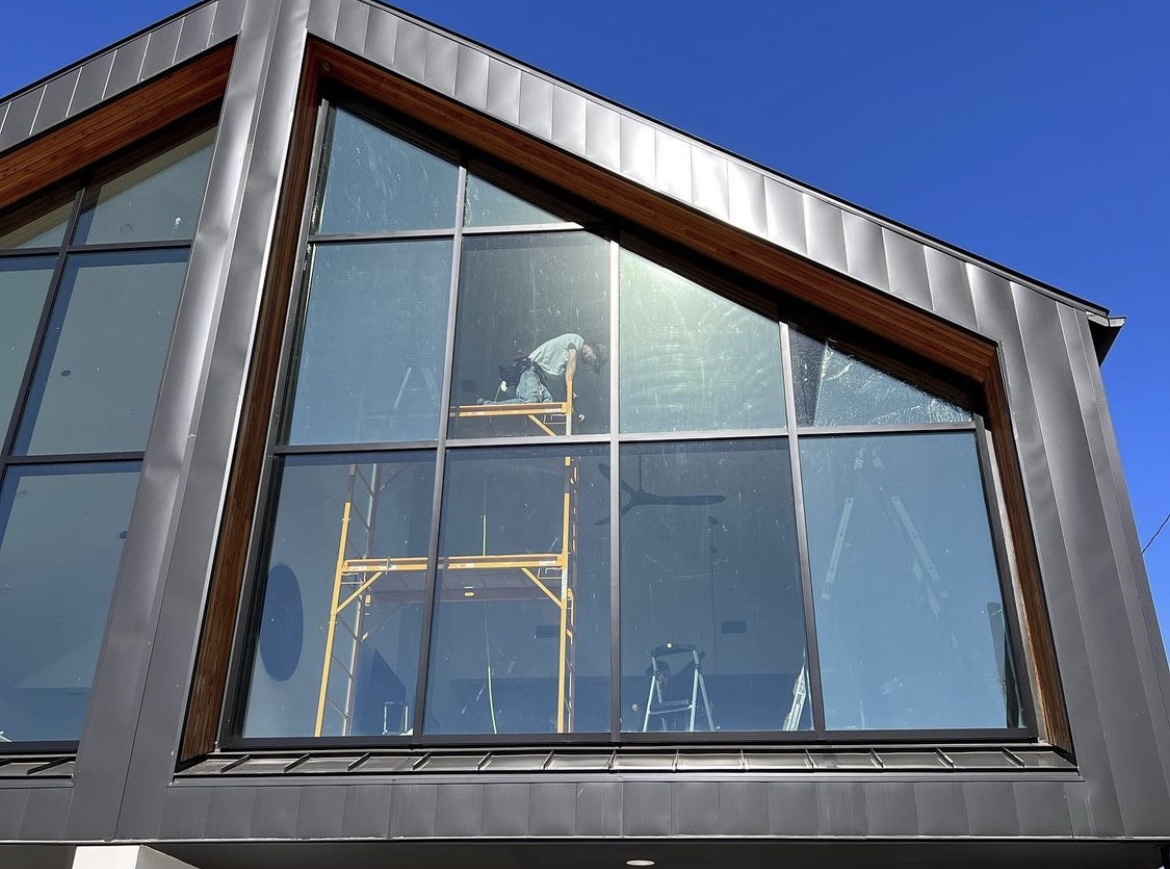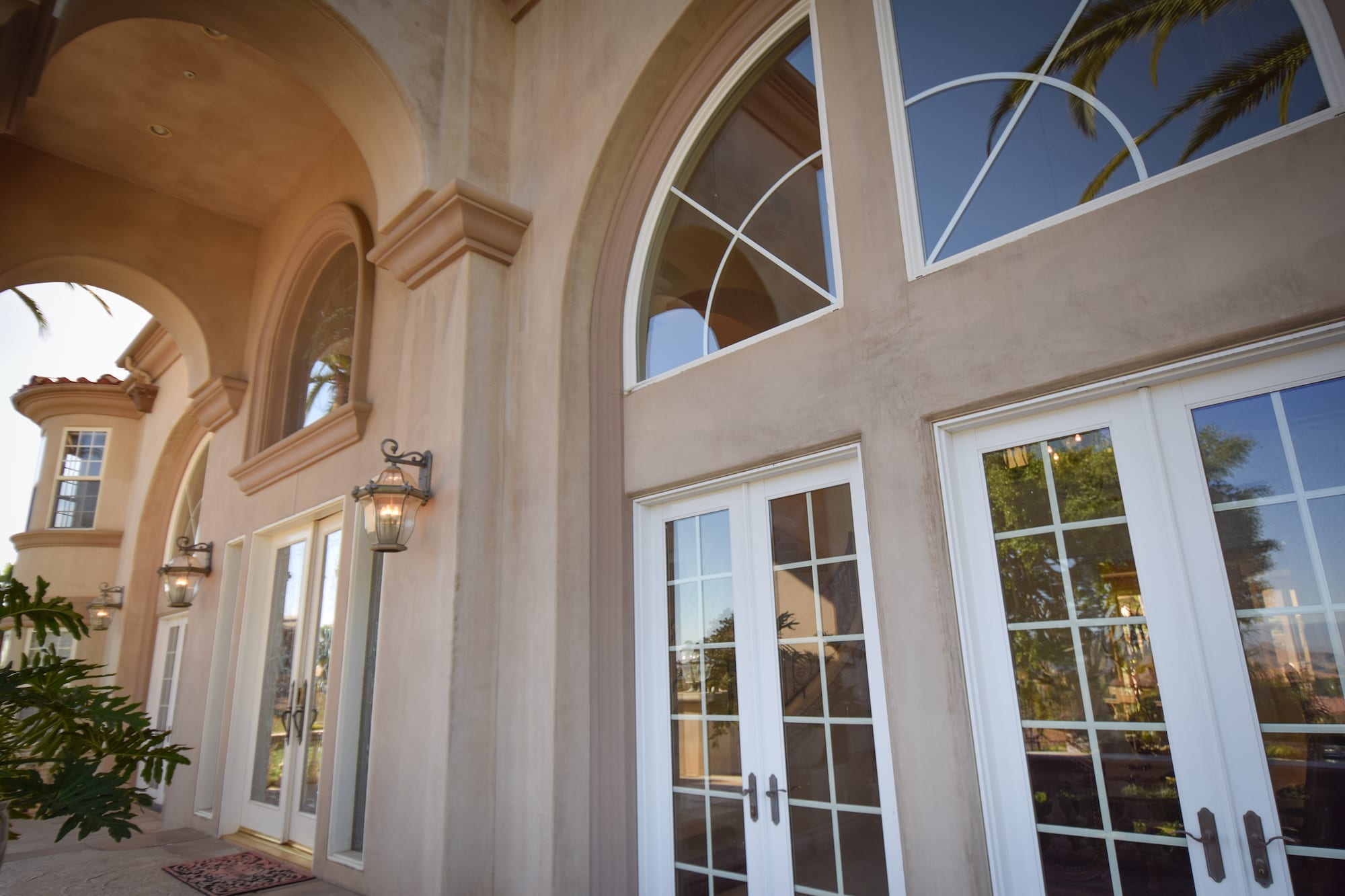Residential Window Tint: Boost Protection and Include a Layer of Protection
Residential Window Tint: Boost Protection and Include a Layer of Protection
Blog Article
Exactly How Residential Home Window Tinting Enhances Your Home's Energy Efficiency
Residential window tinting presents a compelling remedy for property owners seeking to boost power effectiveness within their space. By using specialized movies to windows, it effectively lowers warmth transfer, thereby supporting indoor temperatures and minimizing the requirement for too much heating or air conditioning. This not only stops energy consumption but additionally supplies a much more comfy setting by minimizing glare. Recognizing the subtleties of how tinting works and choosing the appropriate kind for your home can be critical. Strangely enough, what variables should one consider prior to making this financial investment?
Recognizing Home Window Tinting
Understanding window tinting is crucial for home owners seeking to boost both comfort and energy effectiveness in their space. Residential Window Tint. Window tinting involves the application of a thin film to the interior or exterior surface of glass windows. This film can significantly regulate the quantity of sunlight and heat that enters a home, therefore affecting interior environment conditions
There are numerous types of home window tinting films available, each with distinctive homes. The performance of window tinting is usually measured by its Visible Light Transmission (VLT) percent, which shows exactly how much light can pass via the movie.
Advantages of Energy Efficiency
Home window tinting not just enhances visual appeals but additionally plays a considerable duty in boosting energy performance within residential spaces. By reducing warmth transfer through windows, colored films produce a more secure interior climate, which can lead to substantial decreases in energy intake for cooling and heating. This power efficiency converts right into reduced utility bills, providing property owners with substantial lasting savings.

Additionally, home window tinting enhances the convenience of living rooms. By decreasing glow and obstructing unsafe UV rays, tinted windows create a more pleasant setting, which can lead to boosted well-being for occupants. The security versus UV rays also helps protect furniture and flooring from fading, adding to the long life of household products.
Just How Tinting Functions
Tinting movies run through a mix of advanced materials and modern technologies created to regulate the amount of solar power entering a home. Largely composed of polyester, these films often incorporate metal or ceramic particles that take in and reflect warm. This dual capacity permits them to considerably decrease the infiltration of ultraviolet (UV) rays and infrared radiation while allowing noticeable light to travel through.
The effectiveness of window tinting is gauged by its solar warm gain coefficient (SHGC), which suggests just how much solar power is sent with the window. Lower SHGC values are more suitable as they signify better resource heat being rejected. Additionally, home window tints can include a selection of shades, permitting house owners to personalize their aesthetic choices while enhancing energy effectiveness.
Additionally, these films function as a barrier, preventing warm loss throughout cooler months by reflecting indoor warmth back right into the space. This thermal insulation effect matches the cooling advantages acquired throughout warmer months, contributing to a well balanced indoor environment year-round. By taking care of solar energy effectively, household home window tinting not only improves comfort but additionally plays a crucial function in lowering energy usage and reducing utility expenses.
Choosing the Right Color

There are different types of window films available, including dyed, metalized, and ceramic. Ceramic films give excellent warmth control without jeopardizing visibility and are very long lasting, making them a prominent option.
Noticeable light transmission Click This Link (VLT) is an additional crucial factor, as it suggests the amount of natural light that can pass with the colored glass. Homeowners need to select a color with a VLT that matches their lights choices while still providing sufficient glow decrease.
Furthermore, evaluating the solar warmth gain coefficient (SHGC) can assist determine exactly how well a tint can obstruct warmth from sunlight. A lower SHGC shows far better warmth control, inevitably boosting energy efficiency.
Installation and Maintenance Tips
Correct installation and maintenance are important elements in maximizing the benefits of domestic window tinting. To attain optimum results, it is recommended to hire a qualified specialist for installation. This ensures that the tint is used appropriately, avoiding air bubbles, wrinkles, or imbalance that might compromise efficiency. Professionals likewise use specialized strategies and tools, which can improve the durability and efficiency of the color.
Following installment, upkeep page is necessary to lengthen the life of the window film. It is suggested to wait at the very least 30 days before cleansing the tinted windows to permit the glue to heal completely.
Dealing with these issues without delay can avoid more damage and preserve power performance. By adhering to these installment and upkeep suggestions, house owners can ensure their home window tinting proceeds to give considerable power financial savings and comfort for years to come.
Verdict
To conclude, property window tinting offers as an effective service for enhancing energy effectiveness within homes. By decreasing heat transfer and obstructing dangerous UV rays, home window films add to decrease energy consumption and boosted indoor convenience. The option of proper tinting materials, together with appropriate installation and upkeep, further takes full advantage of these benefits. Ultimately, window tinting stands for a sustainable investment that not only decreases energy costs yet additionally promotes a comfortable living atmosphere throughout the year.
Window tinting entails the application of a slim film to the inside or outside surface area of glass windows. By reducing warm transfer through windows, tinted films produce a much more secure interior environment, which can lead to substantial decreases in power usage for heating and air conditioning.The efficiency of home window tinting is gauged by its solar warmth gain coefficient (SHGC), which indicates just how much solar energy is transferred via the home window. By handling solar energy properly, residential home window tinting not only enhances comfort but likewise plays an important role in minimizing power usage and decreasing utility bills.
By reducing warmth transfer and obstructing harmful UV rays, window movies add to lower energy consumption and improved indoor convenience.
Report this page